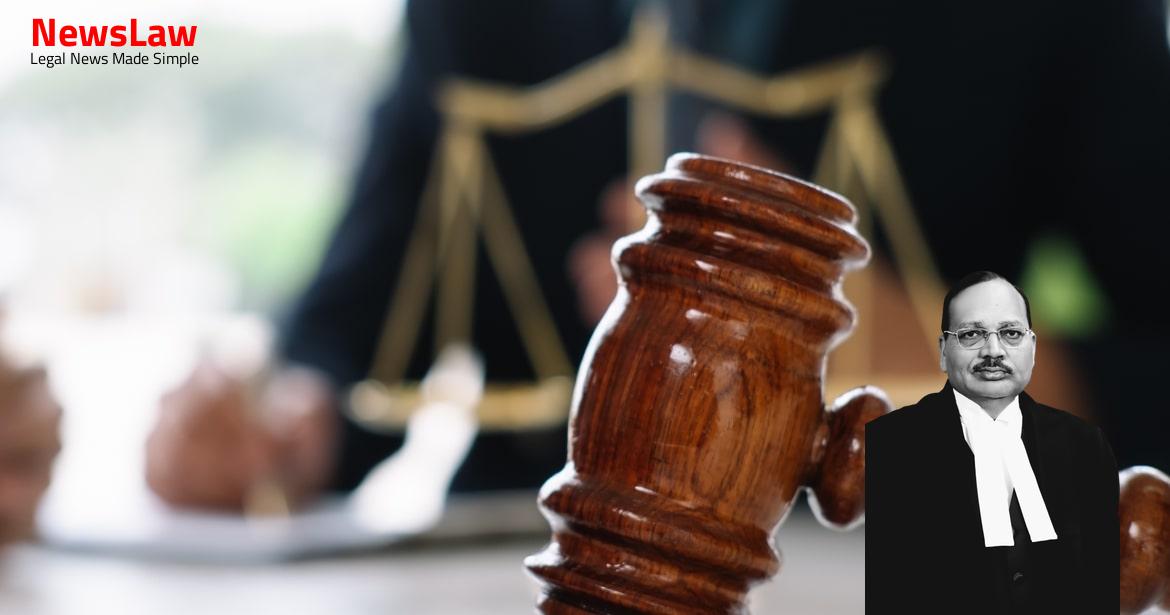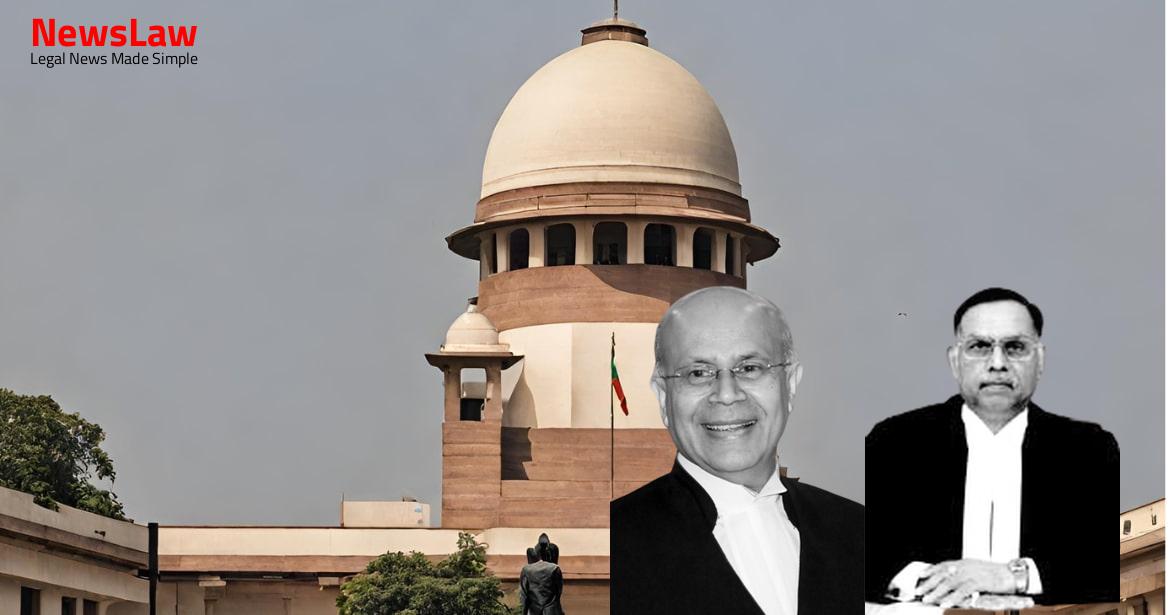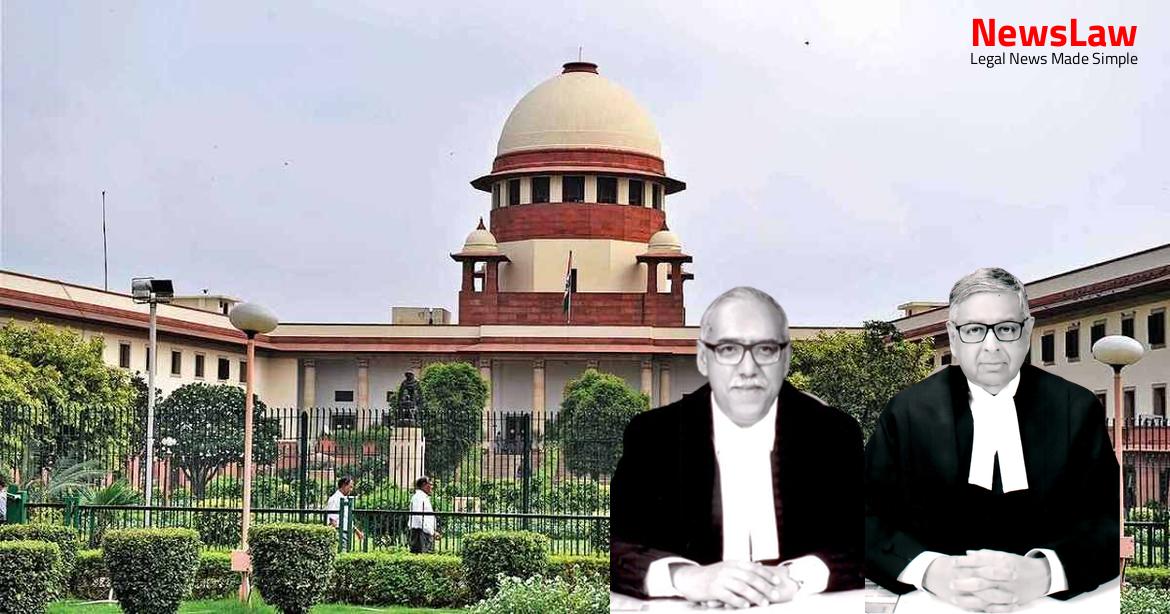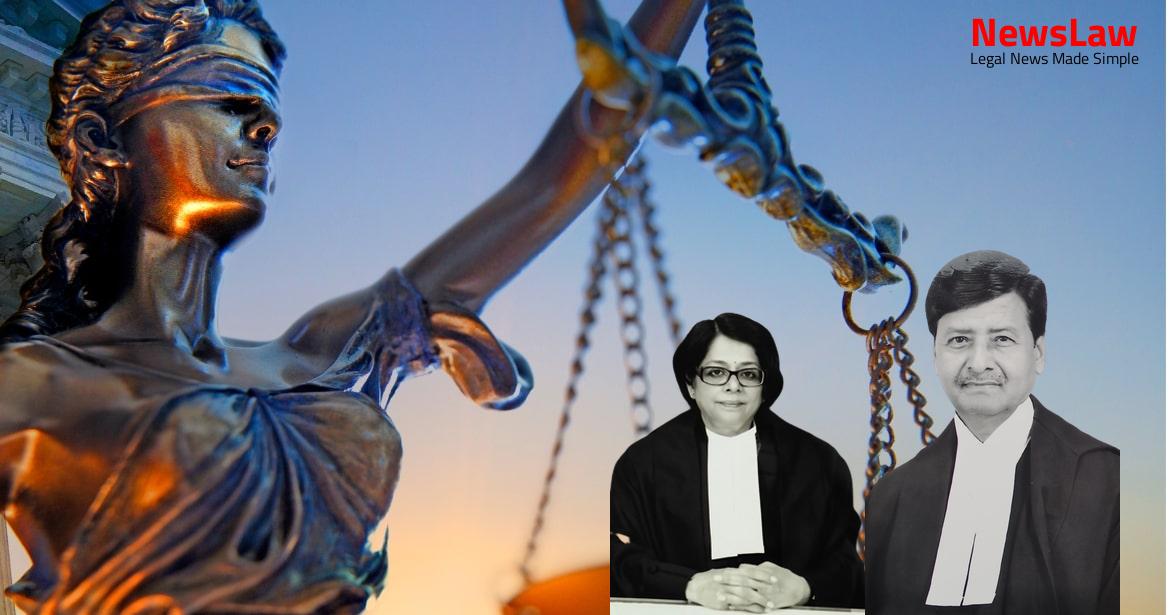In a recent legal case, the Court’s analysis focused on the determination of the limitation issue as a preliminary matter. This decision sheds light on the importance of addressing legal issues efficiently and at an early stage in the legal process. Let’s delve into the details of how the Court’s ruling impacts the litigation process and the parties involved.
Facts
- The respondent denied that there were any loan transactions and claimed that the transactions were related to the payment of commission for real estate services.
- Preliminary issue on limitation was framed by the trial Court with no evidence adduced by the respondent.
- Appellant filed a suit for recovery of Rs. 1,11,63,633 with interest, under Order 37 of CPC.
- Written statement was filed by the respondent denying loan transactions and stating the payments were for real estate services.
- An application was filed to reject the plaint on the grounds of limitation.
- The appellant claimed that the respondent partly discharged his liability and sought the balance amount with interest.
- Specific averments regarding loan repayment terms and outstanding amount were mentioned in the plaint.
- The respondent’s defense in the written statement focused on providing real estate services in exchange for commission payments.
- Appellant claims to have granted business loans to respondent on various dates with interest.
- Trial Judge and High Court held suit barred by limitation due to last payment date exceeding three years.
- Judgment on limitation issued on 16 August 2018 by Trial Court, upheld by High Court.
Also Read: Electoral Malpractices in Mayor Election
Arguments
- The appellant company argues that as a company, it is not expected to have oral understandings with its customers.
- The absence of a written agreement proves that there was no loan transaction, but rather payments made were towards real estate commission.
- The respondent claims the suit is time-barred due to the last payment being made on 24 October 2013 and the suit filed on 31 March 2017.
- Article 1 of the Limitation Act is deemed inapplicable as there was no open and mutual current account between the parties.
- The matter should be decided based on evidence rather than oral arguments alone.
- The Single Judge warns against setting a precedent where a loan agreed in 2000 can be claimed to be repayable in 2019, affecting the suit’s limitation status.
- The appellant argues that the loan was repayable within one year from the last installment, thus the suit filed in 2017 is within limitation.
- The respondent has denied the existence of loan transactions.
- The respondent has set up the plea that the payments made by the appellant were on account of commission.
- There are two conflicting versions on the nature of the business transactions between the parties.
Also Read: Balancing Power and Transparency: Electoral Bonds Struck Down, Disclosure Mandated
Analysis
- Order XIV Rule 2 of the CPC allows for the disposal of a suit by trying the issue of law first if both legal and factual issues arise.
- The two questions of law specified in the provision are the jurisdiction of the Court and any bar to the suit created by current laws.
- The issue of limitation in the case requires the presentation of evidence.
- Determining if the appellant’s claim is time-barred is connected to the nature of the transactions between the parties.
- The plea in paragraph 5 of the plaint’s validity hinges on the evidence provided during trial.
- The Court held that the issue of limitation can be determined as a preliminary issue under Order XIV Rule 2.
- The Court referred to various previous judgments to support its decision.
- It was argued that the issue of limitation cannot be determined as a preliminary issue, but the Court disagreed.
- The Court emphasized the importance of efficiency in the legal process and the need to address the issue of limitation at an early stage.
- Ultimately, the Court ruled that the issue of limitation could be determined as a preliminary issue in the case.
- The issue of limitation can be decided as a preliminary issue under Order XIV Rule(2)(b) if it is based on an admitted fact
- If the facts surrounding the issue of limitation are disputed, it cannot be decided as a preliminary issue
- The determination of the issue of limitation in a case that is not a pure question of law cannot be decided as a preliminary issue under Order XIV Rule 2 of the CPC
Also Read: Recall of Resolution Plan Approval: Legal Analysis
Decision
- Appeal allowed in the above terms
- Judgment of the trial Judge dated 16 August 2018 and of the Single Judge of the High Court dated 4 September 2019 set aside
- Pending applications disposed of
- Issue of limitation framed by the trial Judge to be decided along with other issues at trial
Case Title: M/S MONGIA REALTY AND BUILDWELL PVT. LTD. Vs. MANIK SETHI (2022 INSC 122)
Case Number: C.A. No.-000814-000814 / 2022



